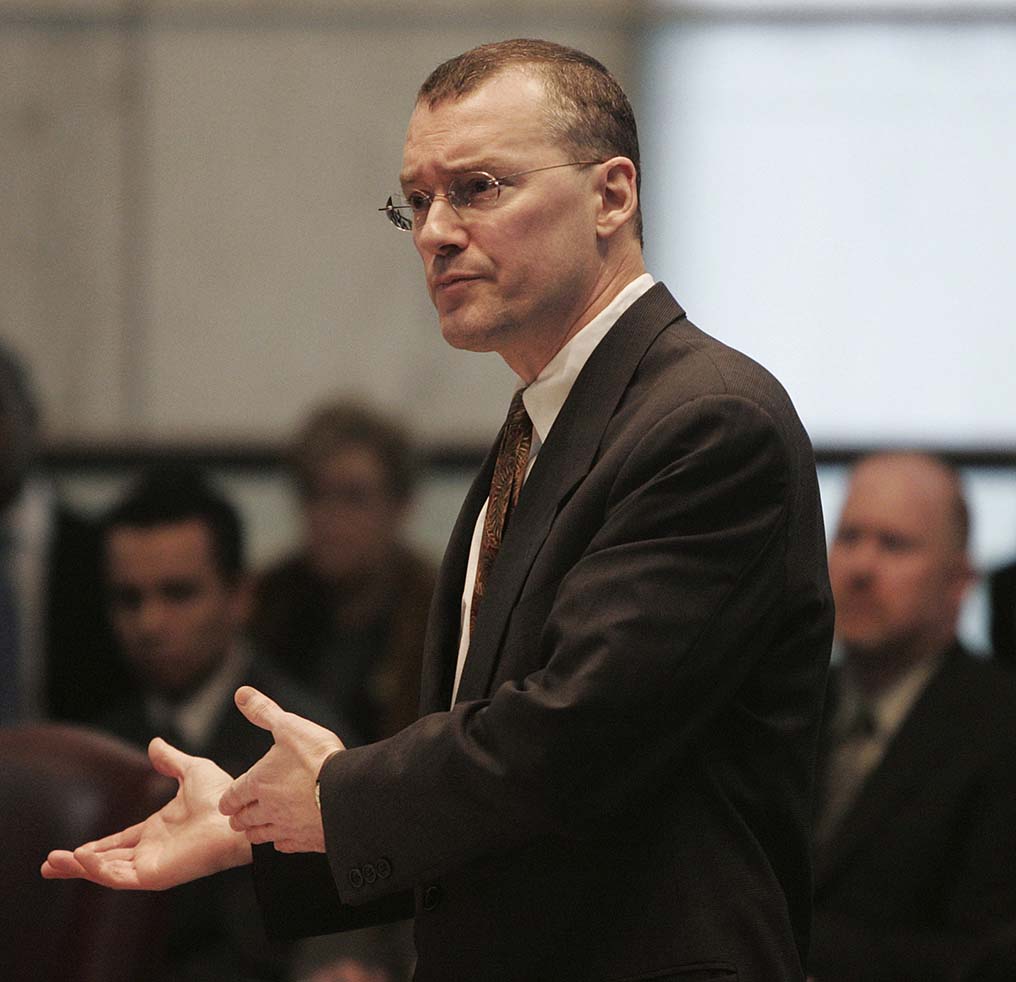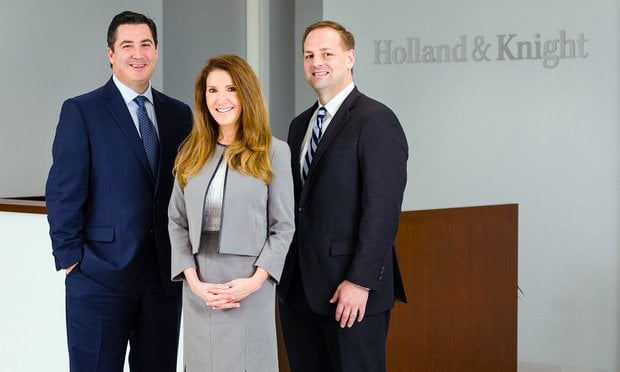Lawyer Who Self-Immolated in Brooklyn Was Best-Known as LGBT Rights Advocate but Played Lower-Key Role for the Environment
While David Buckel, an attorney who died on April 14 after setting himself on fire in a park in Brooklyn, had become widely known for his work on LGBT causes, he spent the final years of his life out of the legal limelight and focused his energy on environmental protection.
April 16, 2018 at 04:33 PM
7 minute read

While David Buckel, an attorney who died on April 14 after setting himself on fire in a park in Brooklyn, had become widely known for his work on LGBT causes, he spent the final years of his life out of the legal limelight and focused his energy on environmental protection.
Buckel's charred remains were found on the morning of April 14 in Prospect Park, close to his residence in the Windsor Terrace section of Brooklyn.
In the minutes before apparently taking his life, Buckel, who was 60 years old at the time of his death, sent an email to various media outlets stating that pollution “ravages our planet” and that he wanted his death “by fossil fuels” to lead to increased action to save the environment.
“Most humans on the planet now breathe air made unhealthy by fossil fuels, and many die early deaths as a result—my early death by fossil fuel reflects what we are doing to ourselves,” he said in his note.
Among his numerous high-profile cases, Buckel was the lead attorney in Brandon v. County of Richardson, in which a court found the Nebraska sheriff's department liable for the death of Brandon Teena, a transgender man who was raped and murdered in 1993.
Teena's story was the basis of the 1999 film “Boys Don't Cry.”
Attorneys who worked with Buckel said they were shocked to hear the news of Buckel's grisly death but that his decision to take his own life was not completely out of step with the way he approached issues that he was passionate about.
“I think he probably thought that was the most effective way to bring attention to an issue he cared about,” said Alphonso David, who is counsel to Gov. Andrew Cuomo and who worked several cases with Buckel when they were both with Lambda Legal. “But, most importantly, I wish he was still here.”
With regard to his work as an attorney, lawyers described Buckel as deliberative and strategic, and that he tended to take the long view when picking legal battles.
“He didn't view these issues myopically,” David said.
Buckel was at the forefront of the fight for marriage equality—in the years before the U.S. Supreme Court issued its historic ruling in Obergefell v. Hodges in 2015 establishing that same-sex couples had the right to get married, proponents of marriage equality were fighting their battles state-by-state, and at the time did not have the benefit of strong public support, said Norman Simon, a partner at Kramer Levin Naftalis & Frankel who worked as co-counsel to Lambda Legal in its effort to achieve marriage equality in New York.
Simon said Buckel's demeanor was mild-mannered and soft-spoken, but that he was a “master strategist” in his legal work. With respect to Buckel's passing, Simon said that Buckel—with whom he had lost touch with after Buckel began focusing on environmental issues—seemed troubled but that he was committed to issues that were “dear and important to him.”
“I think it's clear that he was troubled,” Simon said. “But I do see with his note and the statements there [is] a consistency with his commitment to principle.”
In a statement issued by Lambda Legal, Camilla Taylor, the organization's acting legal director, lauded Buckel for helping create Lambda Legal's focus on advocating on behalf of LGBT youth.
Among the cases that Buckel worked during his time with Lambda Legal was Nabozny v. Podlesny, in which the U.S. Court of Appeals for the Seventh Circuit issued a landmark order finding that school districts are required to protect students from anti-gay bullying.
“David was an indefatigable attorney and advocate, and also a dedicated and loving friend to so many,” Taylor said. “He will be remembered for his kindness, devotion and vision for justice.”
David said that environmental issues had always been a concern for Buckel, and that Buckel had called David around the time Buckel left Lambda Legal in 2007 to tell him that he would focus on environmental advocacy full time.
Buckel's work on the environment's behalf did not attract the same amount of publicity as his work on equal-rights issues for LGBT communities, and much of the work he was praised for in that area was locally focused.
He worked to establish composting sites in New York City and was the site coordinator for the NYC Compost Project, which the Brooklyn Botanic Garden hosts at the Red Hook Community Farm.
Saara Nafici, executive director of Added Value Farms, which operates the Red Hook Community Farm, said in a statement that Buckel elevated community composting to an “exquisite art form.”
“For nearly a decade, David inspired countless members of our community, including staff, youth, and residents, to share his fierce dedication to sustainability and social justice,” Nafici said.
Buckel was a longtime member of the Park Slope Food Co-Op and was known around his neighborhood for his green thumb and maintaining a garden that his neighbors admired, said Catherine Varous, a neighbor of Buckel's who said that she and others on the block were stunned by news of Buckel's death.
“We just can't wrap our heads around it,” she said.
While self-immolation is a rare method for committing suicide, Buckel worked in a profession with one of the highest suicide rates, said Patrick Krill, consultant to law firms on well-being.
An attorney study conducted by the Hazelden Betty Ford Foundation and the American Bar Association Commission on Lawyer Assistance Programs found 28 percent struggle with some level of depression and 19 percent demonstrate symptoms of anxiety.
Krill and others also said that some attorneys can suffer from secondary traumatic stress, or vicarious trauma, when they repeatedly hear stories of traumatic events.
Eileen Travis, director of the New York City Bar Association's Lawyers Assistance Program, said a large portion of the referrals she hears are for mental health issues, such as depression and anxiety, sometimes exacerbated by stress. “It's not unusual” for callers to acknowledge suicidal thoughts, she said. “Often it's a fleeting thought. But occasionally we have people who are actively suicidal, they're thinking about it and they have a plan. In those cases, we try to get them to the hospital as soon as possible.”
But Krill and Travis said they had never seen Buckel's type of death, calling it extremely unusual and possibly distinct from depression altogether.
Travis cited reports stating that suicidal tendencies rarely lead to self-immolation.
Whatever led to Buckel's death, Travis said the city bar's LAP office is prepared to counsel anyone grappling with it. “We're available to help,” Travis said.
“It's quite tragic,” Krill said. “It suggests to me that the individual was struggling on some level. Broadly speaking, this reinforces the need for us to [be] more supportive of each other and to encourage lawyers to seek help before it becomes too late.”
Buckel is survived by his partner, Terry Kaelber, and a daughter. A graduate of Cornell Law School, Buckel was admitted to practice in 1988.
Christine Simmons contributed to this article
NOT FOR REPRINT
© 2025 ALM Global, LLC, All Rights Reserved. Request academic re-use from www.copyright.com. All other uses, submit a request to [email protected]. For more information visit Asset & Logo Licensing.
You Might Like
View All
DOJ Supports Appointing US Judge Backed By Trump to Review Mar-a-Lago Documents
3 minute read

Jay-Z, Quinn Emanuel Say AAA Offers Only 'Token' Black Arbitrators
Trending Stories
- 1US Judge Dismisses Lawsuit Brought Under NYC Gender Violence Law, Ruling Claims Barred Under State Measure
- 24th Circuit Upholds Virginia Law Restricting Online Court Records Access
- 3Lawsuit Against Major Food Brands Could Be Sign of Emerging Litigation Over Processed Foods
- 4Fellows LaBriola LLP is Pleased to Announce that Alisha Goel Has Become Associated with The Firm
- 5Law Firms Turn to 'Golden Handcuffs' to Rein In Partner Movement
Who Got The Work
J. Brugh Lower of Gibbons has entered an appearance for industrial equipment supplier Devco Corporation in a pending trademark infringement lawsuit. The suit, accusing the defendant of selling knock-off Graco products, was filed Dec. 18 in New Jersey District Court by Rivkin Radler on behalf of Graco Inc. and Graco Minnesota. The case, assigned to U.S. District Judge Zahid N. Quraishi, is 3:24-cv-11294, Graco Inc. et al v. Devco Corporation.
Who Got The Work
Rebecca Maller-Stein and Kent A. Yalowitz of Arnold & Porter Kaye Scholer have entered their appearances for Hanaco Venture Capital and its executives, Lior Prosor and David Frankel, in a pending securities lawsuit. The action, filed on Dec. 24 in New York Southern District Court by Zell, Aron & Co. on behalf of Goldeneye Advisors, accuses the defendants of negligently and fraudulently managing the plaintiff's $1 million investment. The case, assigned to U.S. District Judge Vernon S. Broderick, is 1:24-cv-09918, Goldeneye Advisors, LLC v. Hanaco Venture Capital, Ltd. et al.
Who Got The Work
Attorneys from A&O Shearman has stepped in as defense counsel for Toronto-Dominion Bank and other defendants in a pending securities class action. The suit, filed Dec. 11 in New York Southern District Court by Bleichmar Fonti & Auld, accuses the defendants of concealing the bank's 'pervasive' deficiencies in regards to its compliance with the Bank Secrecy Act and the quality of its anti-money laundering controls. The case, assigned to U.S. District Judge Arun Subramanian, is 1:24-cv-09445, Gonzalez v. The Toronto-Dominion Bank et al.
Who Got The Work
Crown Castle International, a Pennsylvania company providing shared communications infrastructure, has turned to Luke D. Wolf of Gordon Rees Scully Mansukhani to fend off a pending breach-of-contract lawsuit. The court action, filed Nov. 25 in Michigan Eastern District Court by Hooper Hathaway PC on behalf of The Town Residences LLC, accuses Crown Castle of failing to transfer approximately $30,000 in utility payments from T-Mobile in breach of a roof-top lease and assignment agreement. The case, assigned to U.S. District Judge Susan K. Declercq, is 2:24-cv-13131, The Town Residences LLC v. T-Mobile US, Inc. et al.
Who Got The Work
Wilfred P. Coronato and Daniel M. Schwartz of McCarter & English have stepped in as defense counsel to Electrolux Home Products Inc. in a pending product liability lawsuit. The court action, filed Nov. 26 in New York Eastern District Court by Poulos Lopiccolo PC and Nagel Rice LLP on behalf of David Stern, alleges that the defendant's refrigerators’ drawers and shelving repeatedly break and fall apart within months after purchase. The case, assigned to U.S. District Judge Joan M. Azrack, is 2:24-cv-08204, Stern v. Electrolux Home Products, Inc.
Featured Firms
Law Offices of Gary Martin Hays & Associates, P.C.
(470) 294-1674
Law Offices of Mark E. Salomone
(857) 444-6468
Smith & Hassler
(713) 739-1250







